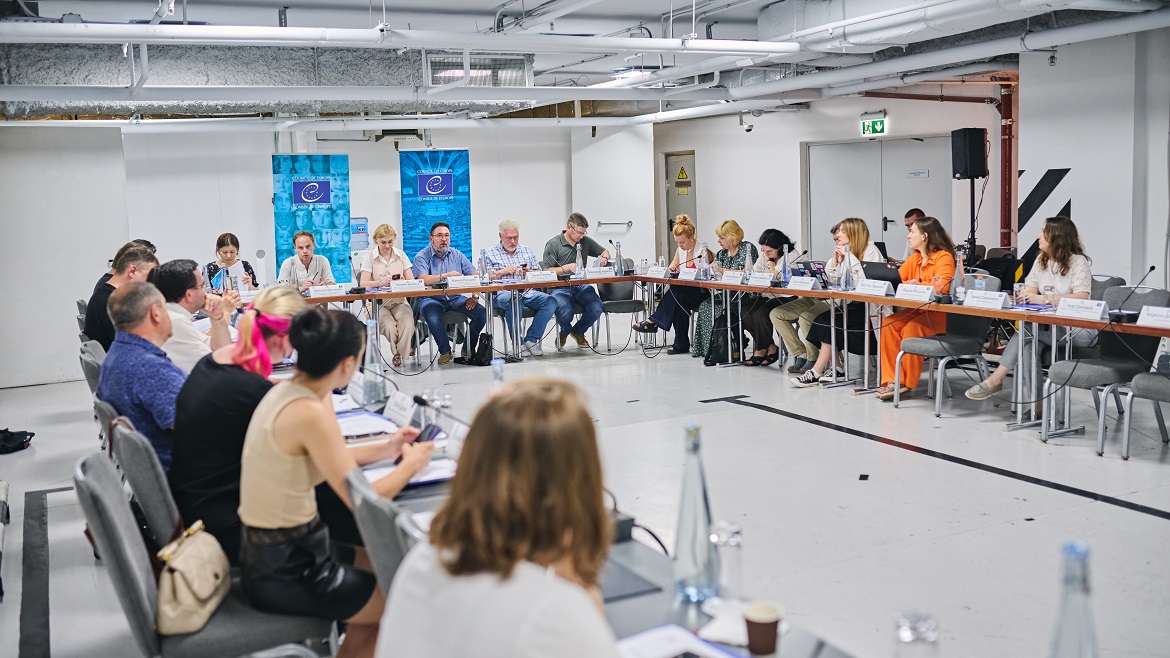What should be done to ensure a safe online information space resilient to disinformation, propaganda, and other harmful content? How should the work of information-sharing online platforms be regulated in Ukraine? What challenges does Ukraine face in integrating its legislation into the EU legal framework (Digital Services Act, Digital Markets Act, Media Freedom Act, EU Artificial Intelligence Act, etc.)?
These and other questions were discussed during a hybrid-format public event focused on the proposed draft Law No. 11115, “On Amendments to Certain Laws of Ukraine Regarding the Regulation of Activities of Shared Access Platforms for Information Dissemination”. The event gathered nearly 60 participants, who joined both in person and online, including members of the Ukrainian Parliament, public officials, representatives of media CSOs, and journalists. They shared their opinions and proposals regarding the draft Law and possible legal mechanisms for improving the protection of the population from online threats, while adhering to commitments to freedom of expression.
The event was organised with the support of the Council of Europe “Safeguarding Freedom of Expression and Freedom of Media in Ukraine” (SFEM-UA) in co-operation with the Committee on Humanitarian and Information Policy and the Committee on Freedom of Speech of the Verkhovna Rada of Ukraine.
Participants presented various views on the matter and shared different avenues for their legal and practical regulation. Everyone agreed on the need to introduce mechanisms to effectively defend the information space, focusing on online threats caused by Russian propaganda, disinformation, and its other malicious activities. Many speakers referred to the EU's experience and newly introduced legislation targeting the regulation of online platforms. However, they noted that incorporating these provisions into the law without access to the institutional machinery established at the EU level and accessible only for its members states could not resolve the situation. Problems related to co-operation and communication with very large online platforms, such as Telegram, TikTok, Facebook, and other social media, were highlighted.
The unique situation of Ukraine, due to the threats posed by the misuse of online platforms by Russians, was emphasised with due consideration of the country’s security situation and the need to ensure safety of its people. The participants discussed good practices introduced by the US, Estonia, and other states, urging the expert community to adopt some of these practices to mitigate current risks. These risks, inter alia, cover the lack of data protection for users of certain platforms, as evidenced by investigations carried out by Ukrainian security and defence agencies.
As an outcome of the event, all stakeholders agreed on the importance of such a dialogue platform. The next discussion is planned for the fourth quarter of the year, involving international and national experts to produce a concrete roadmap for necessary actions.
The Council of Europe Project “Safeguarding Freedom of Expression and Freedom of Media in Ukraine” (SFEM-UA) is implemented by the Council of Europe Division for Co-operation on Freedom of Expression, in the framework of the Council of Europe Action Plan for Ukraine “Resilience, Recovery and Reconstruction” 2023-2026.







